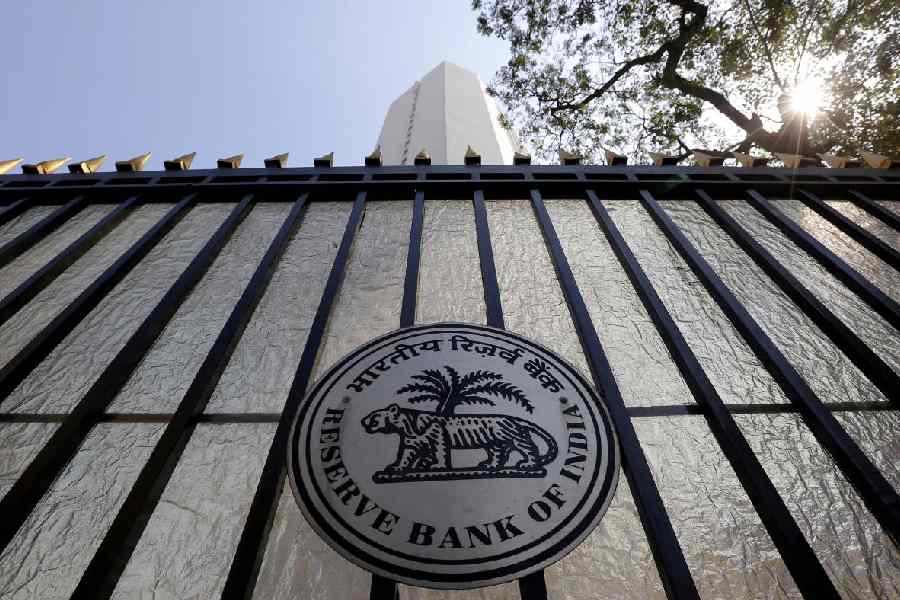|
|
If you want to play the chess of power politics on a global scale, the first rule is this: you have to consider the position and the moves of every single piece on the chessboard. The big worry about making the United States of America central to India?s orientation to the world was that it would render other power games being played invisible. India was pretending as if the Indo-US nuclear pact was a bilateral pact that would facilitate the development of India?s civilian nuclear programme by easing restrictions on the import of uranium and nuclear technology. This was somehow supposed to facilitate India?s further rise as a global power. But many of us had suggested that one of the consequences of this pact would be to make the subcontinent a frontline area in the global tussle between the US and China. India?s great virtue was to have avoided becoming a frontline state in the last conflict between two global powers during Cold War. Every state that, like Pakistan, lets itself become a frontline state in that global conflict brought itself to the brink of ruin. To be sure, the Sino-US rivalry will not take the shape and form of the US-Russia rivalry. Nevertheless, these two powers are going to clash over their respective conceptions of the World Order, and India should tread its path with great skill and acumen. But the last thing India needs is to convert the subcontinent into the frontier of that rivalry.
It has now been reported that Beijing is going to sell Pakistan six to eight nuclear reactors at the cost of 10 billion dollars. This deal has been prompted, in all likelihood, by the Indo-US nuclear pact. By this deal Beijing is sending a number of signals. The first message is to the Bush administration: you cannot unilaterally decide the fate of the non-proliferation order. Washington?s power around the world has always been overestimated; its own client states have routinely subverted its objectives. But China is now throwing down the gauntlet, that if Washington makes an exception for India, China will have every right to make an exception for Pakistan.
The second message is to India. If India enters into a very close strategic partnership with the US, China has the capacity to encircle us. It is already dangling the carrot of nuclear cooperation to both Pakistan and Bangladesh, and we will be powerless to respond. The third message is to the US congress, that granting an exception for India will truly wreck the global non-proliferation regime.
It could be argued that Beijing would do what it is doing anyway; its past record on assistance to Pakistan contributed much to wrecking the non-proliferation order. But there is little doubt that the intensity of its engagement with Pakistan will increase dramatically as a result of the recent turn in Indo-US relations. Does this bode well for peace and stability in the subcontinent?
The second major problem with the Indo-US deal was that it has not been placed in the context a well-thought out nuclear doctrine for India. Our official line is a combination of the following claims. Nothing in the deal will prevent India from developing a credible minimum nuclear deterrent. In addition, it is now in India?s interest to become an active player in enforcing a non-proliferation regime around the world. Hence, India?s vote on Iran. The difficulty is that it is not clear that we are pursuing either of the two objectives with any clarity.
Take the debate over the minimum nuclear deterrent. What is our doctrine and objective at this stage? What is the size of the credible minimum nuclear deterrent we are looking for? From a realist perspective, what you think of the Indo-US nuclear deal depends upon your answer to this question. The government has been assuring us that nothing in the deal will impinge on the independence of our nuclear strategy. But so long as credible minimum deterrent remains a nebulous phrase on which there is little consensus, it is difficult to convince sceptics of the real cost of the deal.
On the other hand, we also spout the rhetoric of non-proliferation. And there is no doubt that our record on this matter, compared to countries like China and Pakistan, has been exemplary. However, the Indo-US nuclear deal, combined with the claim that we are still committed to our own independent deterrent, makes our authority on non-proliferation matters pretty dubious. How can we simultaneously say that we have a right to our own independent nuclear policy, including a minimal deterrent but others do not?
It is in this context that the Indo-US deal was always going to have major consequences for nuclearization of the subcontinent. It was fatuous of us to think that this deal would not intensify the competition with both China and Pakistan. It was myopic to think that India can suddenly become a non-proliferation czar, taking exactly the same line as the US.
The real issue we need to confront is this: what kind of a world order do we want? Where are we willing to put in all our efforts? Critics of the Indo-US deal around the world are correct: if non-proliferation is in the world?s best interests, then the deal is a bad idea. It will lead to an intensification of nuclear cooperation around the world, some of which will have spillovers into military developments. And India is going to pay the price right in its backyard. On the other hand, if we want to play the ?independent nuclear strategy? game, then the deal cuts down your room for manoeuvre. I am not advocating this option, but a consistent strategic outlook would be right in asking: Why foreclose the option that you might want to sell nuclear technology to Vietnam one day, if the need arises? The trouble with the Indo-US nuclear deal was that it is based on a nuclear doctrine that is neither fish nor fowl.
But the time has come for India to choose what kind of power it wants to be. Does it want to play the nuclear game like the Big Boys did? In which case it needs to be more brazen and bloody- minded like China is. Or does it now want to be a force for non-proliferation? In which case, it should have the political courage, like South Africa and Brazil, to put a cap on its nuclear programme and leverage rather than putting pressure on Pakistan to do the same. But at the moment, we are mired in half measures and will get the worst of both worlds: we will neither reduce the intensity of nuclearization of the subcontinent, nor will we acquire such power as to seriously join the Big Boys. Given the character of our political establishment it is unlikely that we will ever become as brazen a power as China is; and this may not be a bad thing. But on the other hand, now that we have demonstrated to the world that we can be independent, create our own technology, is it time to get really serious about non-proliferation, and set an example by not falling into the trap of double standards that other great powers have? The Indo-US nuclear deal was always about India?s identity as a great power, it is not about the technicalities of civilian energy programmes. But the identity it manifested was incoherent, vulnerable from all sides: from the realist side for not being tough enough; from the non-proliferation side, for acknowledging its consequences for nuclear stability around the world. And it forgot the basic lesson of international chess: a single move has ramifications for all other pieces on the board. You cannot pretend that what you do with the US does not have consequences for what China will do to you. We have to think through our options more carefully.











